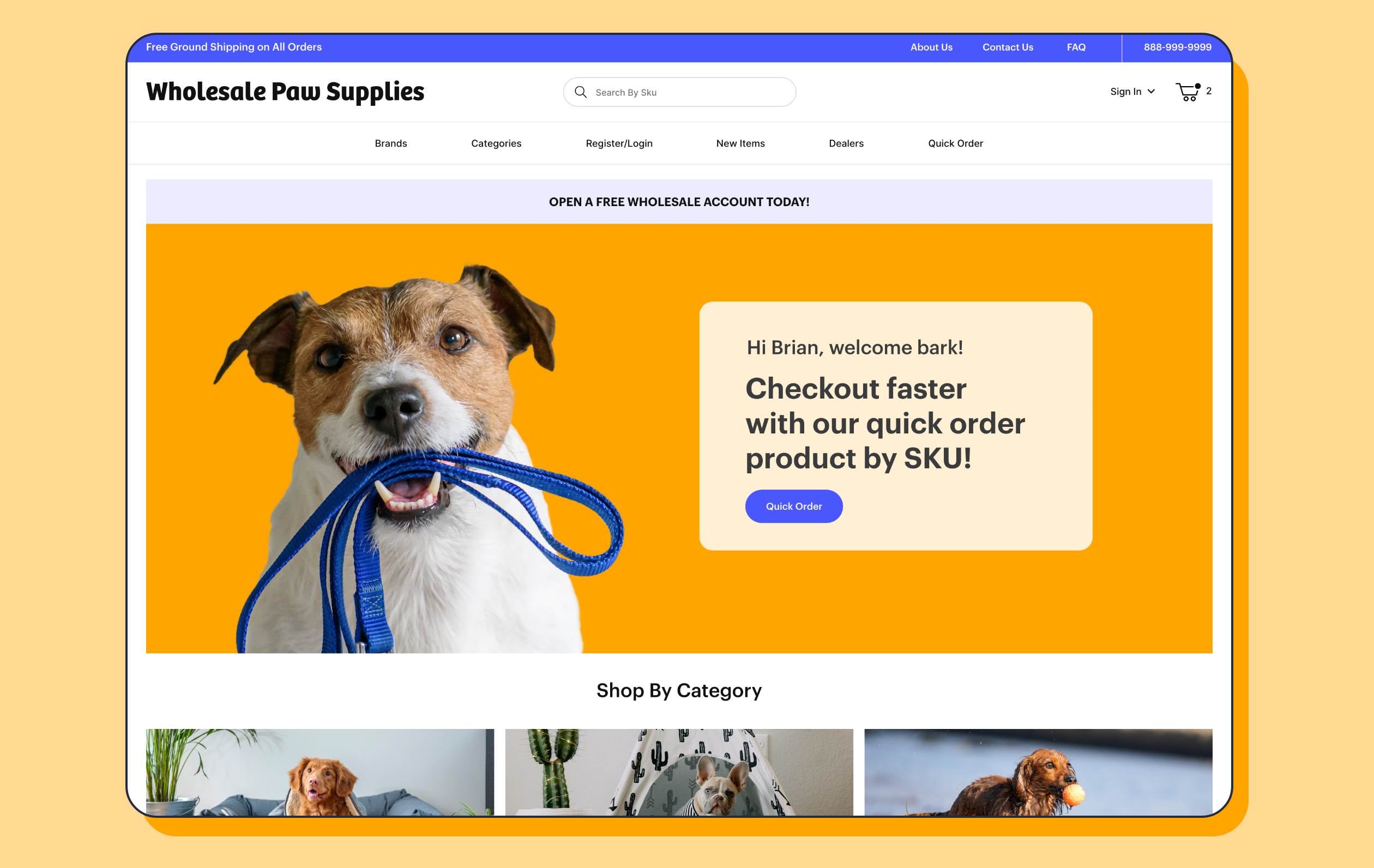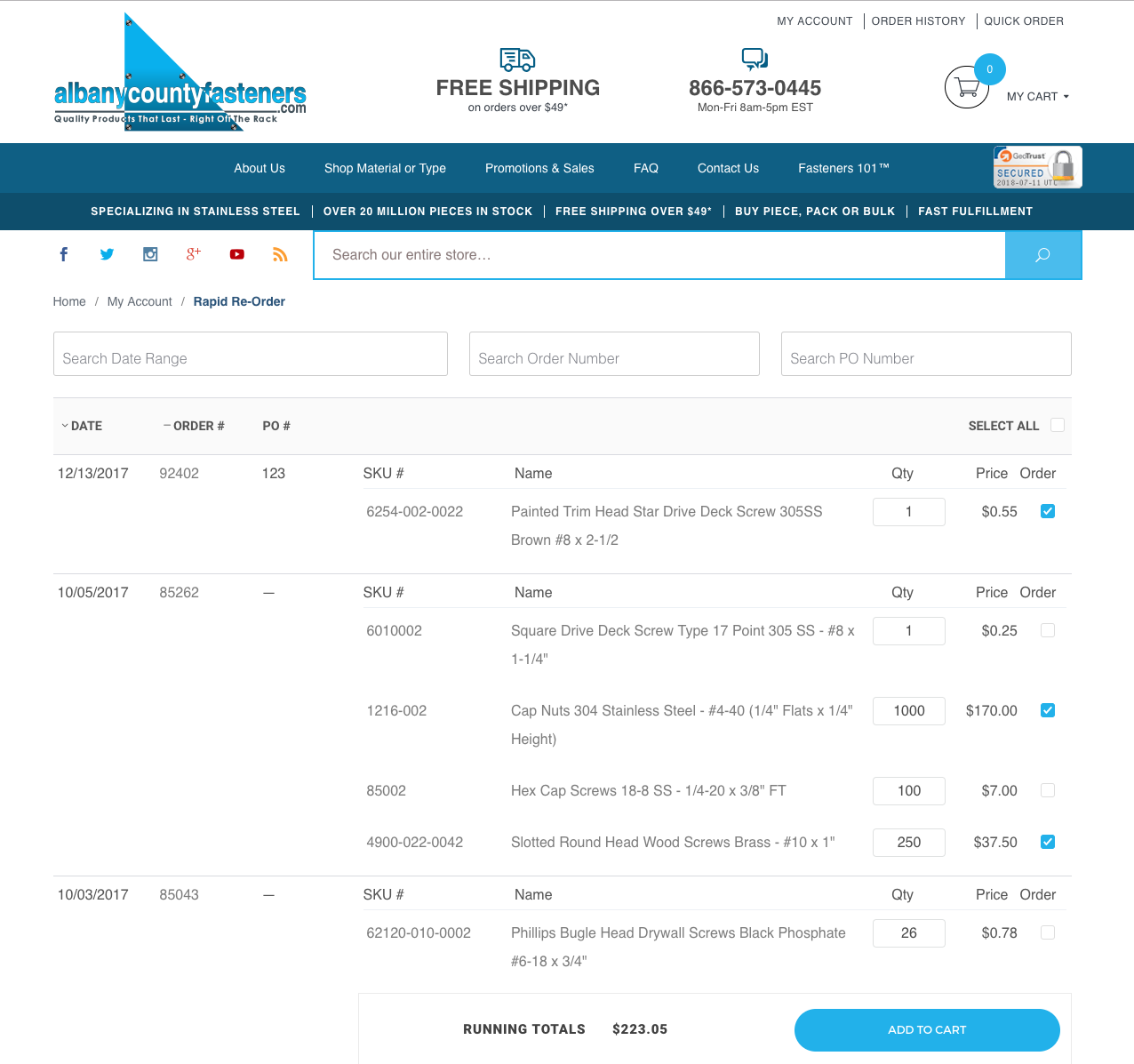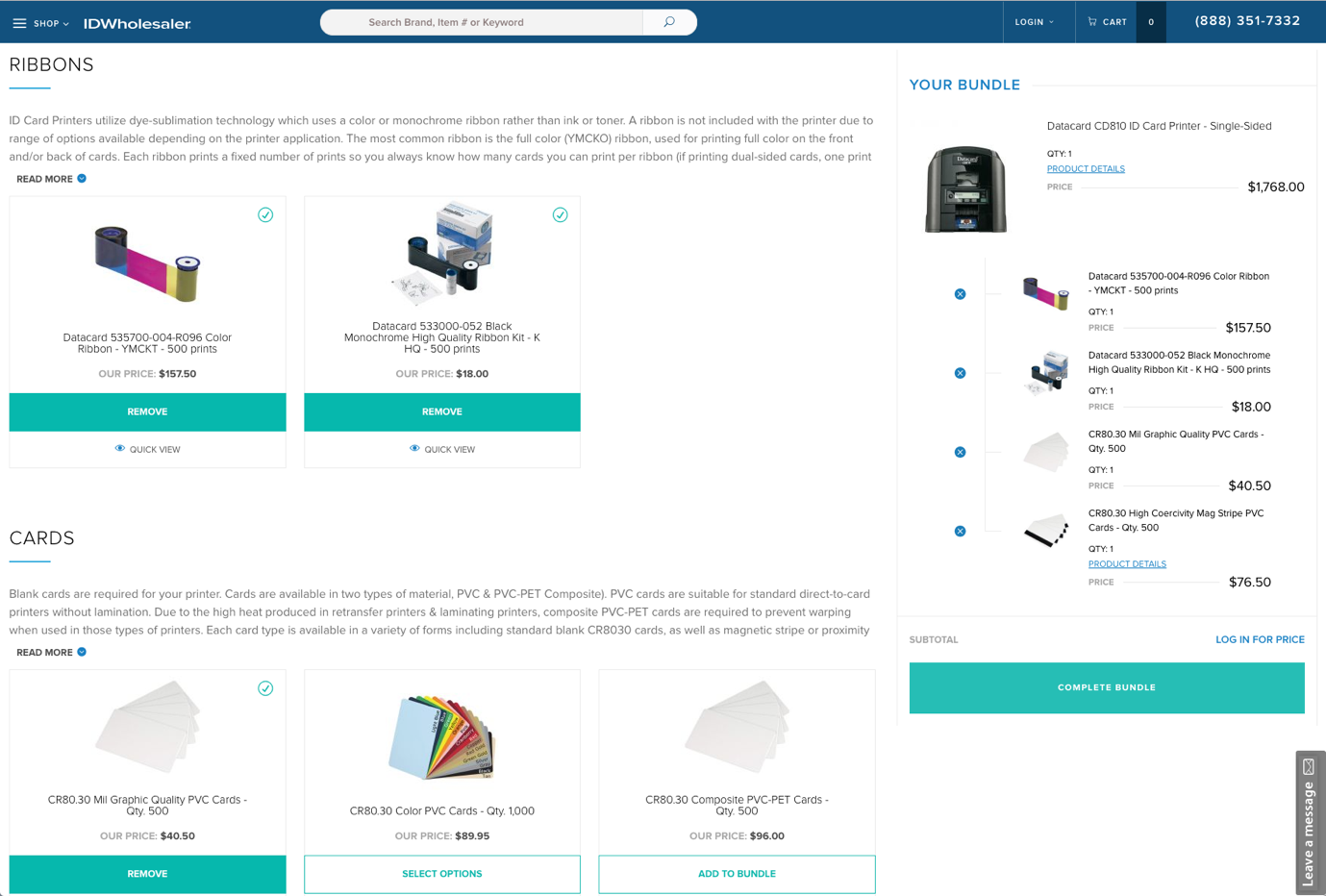
See why top ecommerce brands use Miva’s no-code platform to run
multiple stores, manage massive catalogs, and grow their revenue.
Forrester estimates B2B ecommerce will top three trillion dollars and account for 24% of all B2B sales by 2027. That’s a lot of opportunity for your online B2B store. However, getting business buyers in the door of your ecommerce store is just the start. You can increase your B2B conversion rates by helping buyers find what they’re looking for swiftly, and then get them out the door quickly. Here are some important B2B ecommerce features and functionality to help you dial in your shopping experience and make those conversions soar:
In order to increase B2B ecommerce conversion rates, the B2B buyer journey and sales process should incorporate personalized shopping experiences driven by the preferences, behavior, and negotiated terms of unique customers. Start by offering buyers a personalized dashboard which displays customers' recent orders, relevant products, and timely promotions. You can also set up different account groups based on order volume, business niche, or other preference, then serve each group with custom experiences tailored specifically for them. Offer rewards such as custom pricing, early product availability, invoicing options, or enhanced customer service are also very effective for creating an engaging, effective buying experience with a concierge feel.
For an example of how this can work, see how easy it is for wholesale customers to save time and effort by using the Rapid Reorder feature on Albany County Fasteners. Buyers can quickly re-order items at the correct quantity and price based on their previous orders—the perfect illustration of how personalization improves the shopping experience for buyers.

For many online consumers, shopping is often a fun pastime. However, successful wholesale sites cater to B2B customers with a “let’s get this job done” mindset. Setting your site up with powerful filtering and categorization will help buyers find what they are looking for faster and increase B2B ecommerce conversion rates. But don’t assume they always know exactly what it is that they’re shopping for—or that they always have to stick to a strict budget. Incorporating “Suggested Products” functionality is a great way to increase upselling and cross-selling opportunities.
Take a look at how IDWholesaler suggests new products to create a multi-item bundle purchase (“Your Bundle”) based on the user’s selected item:

B2B buyer loyalty is highly driven by successful, efficient transactions—but if there is one thing B2B customers hate it’s finding out too late that an order can’t be fulfilled because a product is out of stock. The potential backlash can be costly, including canceled orders and negative product reviews which can hurt B2B conversion rates. Avoid that by connecting your store with your Enterprise Resource Planning (ERP) or Operations Management System (OMS), which keep inventory data up to date across your site and systems. Providing accurate inventory levels will reduce customer service issues and major headaches. Providing accurate inventory levels will reduce customer service issues and major headaches. You can also be proactive and give customers a “heads up” when inventory levels are low—creating urgency for them to buy. Plus, syncing customer and order data provides you with opportunities for marketing specific products to them—either when stocks are low or too high.
Whether B2B customers are buying a specific part or reordering items in bulk, they always want to glide through the checkout process. To ensure a completed conversion and smooth checkout, make sure your site has this functionality:
Don’t fall into the trap of thinking mobile shopping is just for retail. Today, B2B product research is done on job sites, at the airport, on sales calls, and even at brick-and-mortar stores when the product selection is underwhelming. McKinsey & Company reports that B2B orders completed on mobile have increased by 250% since before 2020, with a 30% increase in B2B shoppers who prefer to shop via mobile apps. The trend lines are clear.
More and more customers are clicking the buy button on mobile devices, particularly if they’ve already created an account and you’ve made the ordering easy for them. Keep this in mind: If potential customers have a poor experience with your site—even while they’re still in the researching phase—they will be more likely to move to a competitor’s site when they’re ready to purchase. Creating an online store that’s fully responsive on any mobile device is easy on the right platform, yet can produce huge dividends when well-executed.
These techniques for increasing B2B conversions demonstrate the how sellers can take advantage of the amazing opportunities in the rapidly growing B2B space. Advanced shopping experiences are no longer limited to B2C sites - in fact many wholesale sellers and manufacturers are increasing B2B conversions by incorporating the best B2B and DTC strategies into one website, delivering excellent, conversion-driving shopping experiences for every audience.
This blog was updated on December 6, 2022.

Elisa Williams is a journalist and communications strategist who combines storytelling with solid research and analysis. A contributing author to the Miva Blog, Elisa has written for a wide array of consumer, business and technology publications, including Newsweek, Real Simple, Computer Life and Inc. Her marketing and content development work includes supporting technology companies that specialize in ecommerce, financial services and big data.
Love it? Share it!
No worries, download the PDF version now and enjoy your reading later...
Download PDF Miva
Miva
Miva offers a flexible and adaptable ecommerce platform that evolves with businesses and allows them to drive sales, maximize average order value, cut overhead costs, and increase revenue. Miva has been helping businesses realize their ecommerce potential for over 20 years and empowering retail, wholesale, and direct-to-consumer sellers across all industries to transform their business through ecommerce.
Visit Website